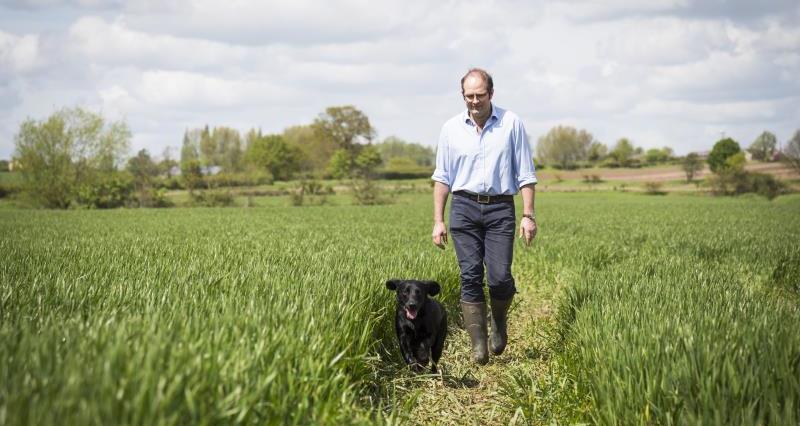Writing in Arable Farming magazine, NFU combinable crops board chairman Tom Bradshaw explains how increasing productivity is key to reaching our net zero ambition.
Many of you will have heard that the NFU has an ambition of being net zero emissions by 2040. At first glance many were sceptical, but this could be a great opportunity to give our industry a long overdue kick up the backside. When we look at the UK productivity figures comparing us with other countries around the world, we don’t come off particularly favourably. We could argue that when the comparisons were started, we weren’t all at the same place, and starting us all with an Index of 100 was not a true reflection of comparative productivity levels. What is very clear is that over the past couple of decades we have fallen behind our competitors including the Dutch, Brazilians and the Americans. At some point we need to look at this information, accept the challenge, roll up our sleeves and work out how we are going to get better. I believe that net zero could be that trigger.
Recently I was lucky enough to spend time with a very impressive Essex MP with a small group of farmers. The final discussion point was about plant breeding and the Agritech strategy. To begin with our guest didn’t seem that committed to the idea but then I explained that for every improvement in productivity, we reduce our net footprint per unit of output and there is a win for food, farming and the environment. Suddenly the MP seemed genuinely engaged and could see the role for science and plant breeding and how it could contribute to wider society.
What I describe above is part of how I see the net zero ambition playing out. We need the UK government to show a shared commitment to the policy. Climate change has never been more topical than now, and agriculture can and will play its part in helping reverse one of the biggest global challenges. We need government to see UK farming as part of the solution and not the problem. We will need a government that is going to enable scientific rather than political decision-making, allowing our world-leading plant breeders to use novel breeding techniques and focus on the challenges of nutrient use efficiency and disease resistance. Alongside this we need a regulatory framework that is fit for purpose and that uses a true interpretation of the precautionary principle rather than the current view which has become entrenched in the current EU decision-making process.
Net zero is not in anyway about downsizing UK agriculture, exporting our footprint overseas and sailing off into the sunset. For me, the key part of this ambition is how we can work with government to make sure that UK agriculture is a shining beacon among world farming, actively becoming more productive and making better use of our resources.
Another key part of this work stream will be working with our supply chains to the same shared goal. There will be parts of their energy use and emissions that they genuinely can’t reduce and there may be an opportunity for the primary producer to provide a service offsetting these emissions at a farm level. Effectively this would bring private capital into the environmental goods part of the equation. However, none of this will be possible if we have a consumer who says they care about climate change but who continues to pick the cheapest, potentially lower quality, loaf off the shelf. This will be the most challenging part of the equation. As a generalisation, consumers (and I include myself in that bracket) have become far too used to not paying the true environmental cost of anything!
